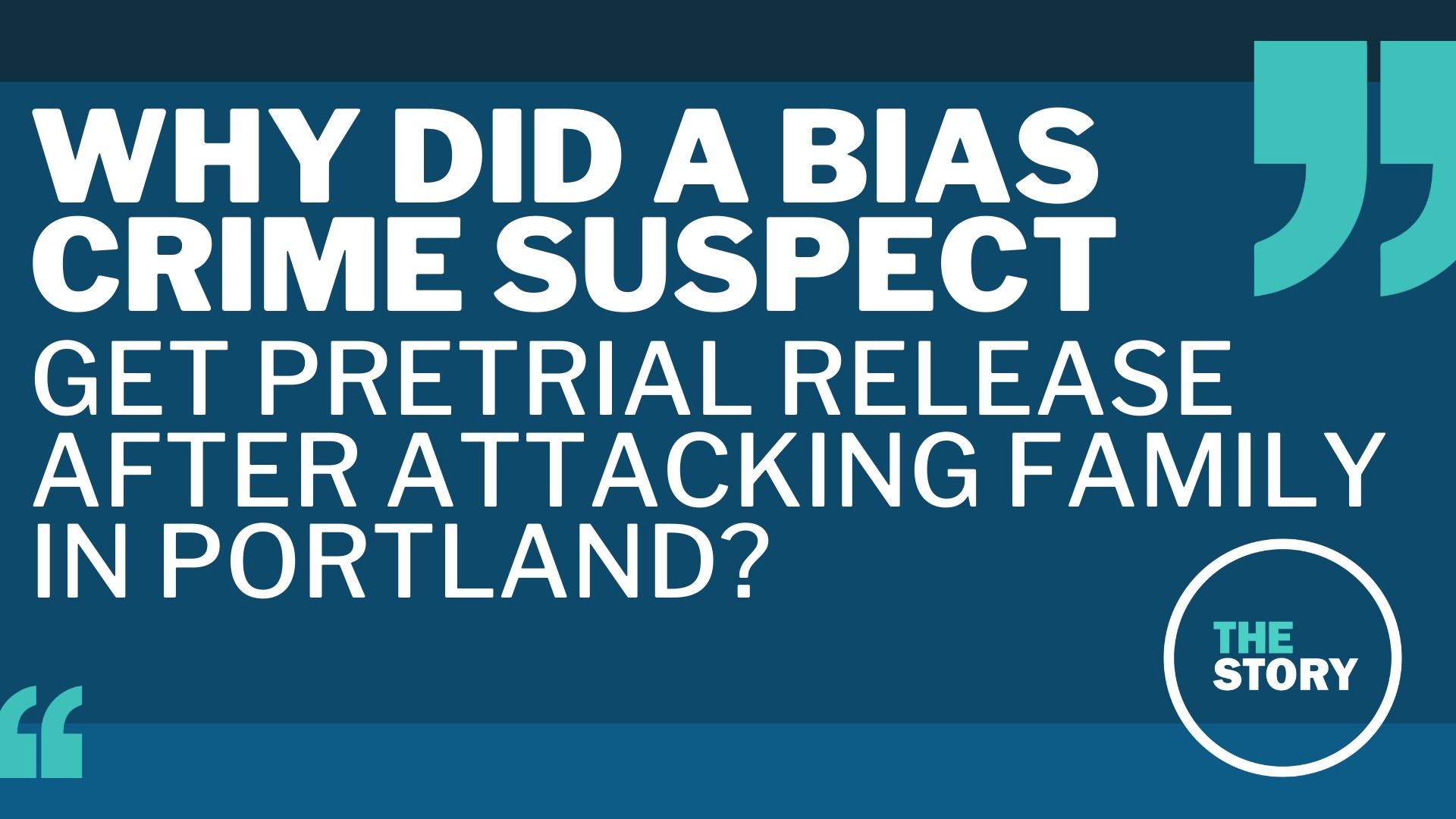PORTLAND, Ore. — When is an individual released after being charged with a crime, and when are they detained until their next hearing?
In Oregon, this system as a whole changed on July 1 due to the passing of Senate Bill 48, which moved the state away from a bail-based system to one that focuses even more on a person's potential threat to the community.
Booking and pretrial detention are in focus after an alleged hate crime on Saturday at the Eastbank Esplanade on the east shore of the Willamette River.
A closer look at the case explains why the suspect needed to be arrested twice, and how judges will be making pretrial decision moving forward.
What happened on the waterfront
Portland Police arrested Dylan Kesterson on Saturday after a reported racially motivated attack.
A man and his 5-year-old daughter from California, both of Japanese descent, said Kesterson yelled anti-Asian slurs at them before he started attacking them. The father said he was 'punched 50 times.'
Police charged Kesterson with first and second-degree bias crime, but not assault.
The Portland Police Bureau (PPB) said the victims did not require medical attention at the scene and the Oregon statute for assault requires physical injury.
Lewis and Clark College law professor Tung Yin said if police officers don’t see evidence of physical injury, they might avoid assault-related charges with prosecution in mind, but it’s possible other officers could view a situation differently.
"Maybe judgment is a better way of putting it than discretion ... again, you have to look at what each crime would require to be proven and the officer has to decide, 'OK, if I turn this over to the prosecutor, is there enough here that the prosecutor would be able to make the case,'" Yin said.
Kesterson was booked and quickly released from jail. He was told to return for his hearing.
Why the suspect was released
On Tuesday, the Multnomah County District Attorney’s office reviewed the case and added five charges, including assault in the fourth degree and attempted assault in the second degree.
The question KGW asked: Why weren't these charges added on initial booking, before Kesterson was released?
PPB public information officer Sgt. Kevin Allen said that after the reported attack, the father went to a hospital for care, which provided the DA's office with new information that they could use to justify additional charges. Allen said this is not unusual.
One of the new charges — attempted assault in the second degree — is classified as a violent felony under Multnomah County’s Presiding Judge Order.
That means a judge would’ve detained Kesterson until his hearing, if it had been levied on Saturday.
However, by this point, Kesterson had already been released. He didn’t show up for his hearing, and police had to find him and arrest him again.
RELATED: Portland police arrest man accused of anti-Asian attack after he failed to show up in court
'The shortcomings of the criminal justice system' and the changes made
Portland Mayor Ted Wheeler said it was “outrageous” that Kesterson was released before his hearing and arrested twice, saying the criminal justice system needs to be reviewed to fix “these broken elements.”
Oregon's criminal justice system and pretrial detention qualifications were just reviewed by state lawmakers last year with the passing of SB 48, changing the rules for pretrial release and detention as of last week.
Starting July 1, Oregon moved away from a bail-based system to a system that judges an individual's danger to the public.
The goal is to base release categories on the seriousness of charges and any criminal history, rather than how much money a person can pay.
"The reasons for it are first, to recognize that people are being deprived of their liberties and [secondly], the consequences are unevenly distributed," Yin said.
Circuit courts across Oregon have created their own presiding judge orders to set new release criteria.
Judge Cheryl Albrecht, Chief Criminal Judge for the Multnomah County Circuit Court, told KGW that for bias crimes, Multnomah County’s consequences are already more strict than what’s required under state law.
In Kesterson’s case, because he didn’t have other arrests or convictions in Oregon and the assault charges had not been added when the judge reviewed the case, he was released from jail before his arraignment.
Moving forward, judges will use their court’s rubrics to determine whether to release or hold someone in jail before their hearing or trial.

